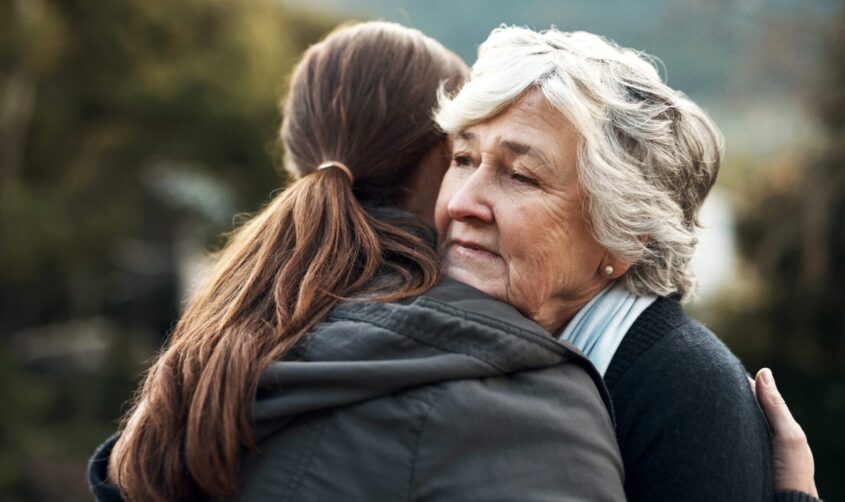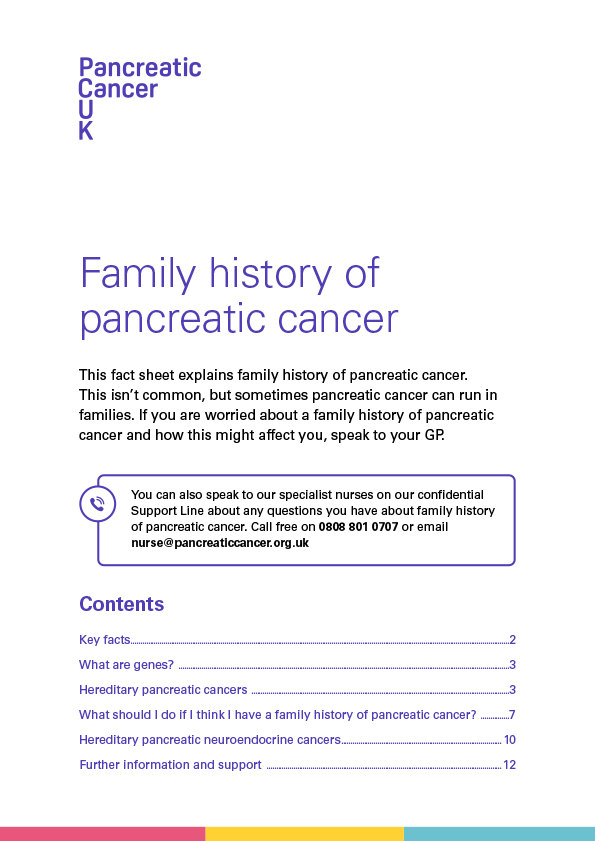Worried about pancreatic cancer in your family?
Answer three quick questions to check your risk and find out if you and your family may benefit from regular monitoring.
Sometimes cancers can ‘run in the family’. This isn’t common in pancreatic cancer. It’s less than one in ten (10%) of pancreatic cancers. In most cases pancreatic cancer doesn’t run in families.
If pancreatic cancer runs in your family, you and your family may be able to take part in a study looking at family history of pancreatic cancer. This is called the EUROPAC study. As part this, you and your family may be able to have regular monitoring. This aims to spot any changes to the pancreas at an early stage.
Answer three quick questions to check your risk and find out if you and your family may benefit from regular monitoring.


Genes carry the information that controls our appearance and how our bodies work. Genes come in pairs. We inherit one copy of each gene from our mother and the other from our father. We all have tiny differences in our genes that make us individual. For example, genes determine the colour of our eyes and hair.
Occasionally, there may be changes in genes which mean that someone is more likely to get a disease. This type of change in a gene is often called a fault or mutation. Having a faulty gene doesn’t always mean someone will develop cancer.
Changes in genes can be inherited from a parent. Changes to genes can also happen during our lifetime, and these changes are not inherited from our parents. They may be caused by a random mistake when a cell divides. Or they may be caused by other things, such as smoking. These are much more common causes of cancer than inherited genetic faults.
A small number of genetic conditions are linked to an increased risk of pancreatic cancer.
You can download this information in our fact sheet, Family history of pancreatic cancer.


If you have questions or worries about family history of pancreatic cancer, you can speak to our specialist nurses on our free Support Line.


Email us at publications@pancreaticcancer.org.uk for a list of sources used to write this information
We would like to thank the following people who reviewed our information on family history.
Published June 2022
Updated September 2024
To be reviewed June 2025